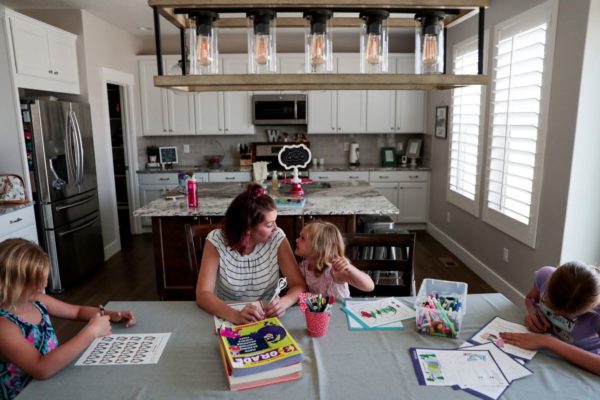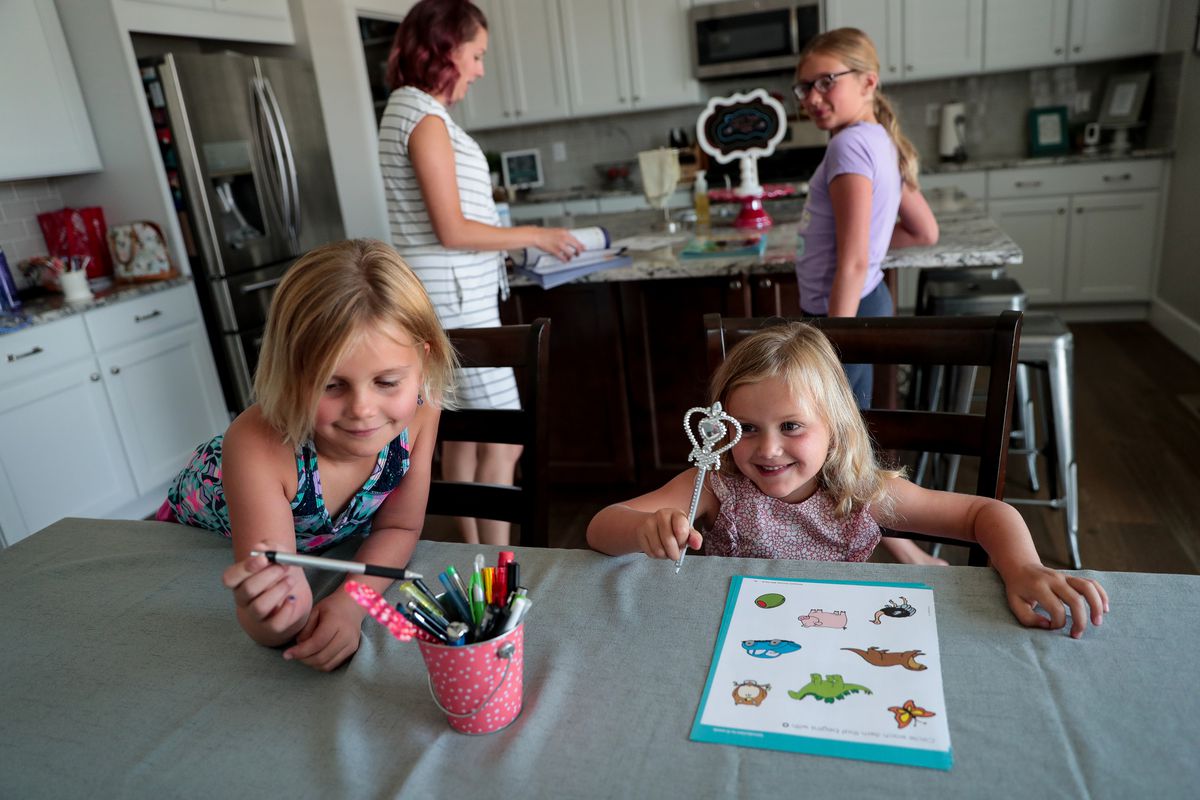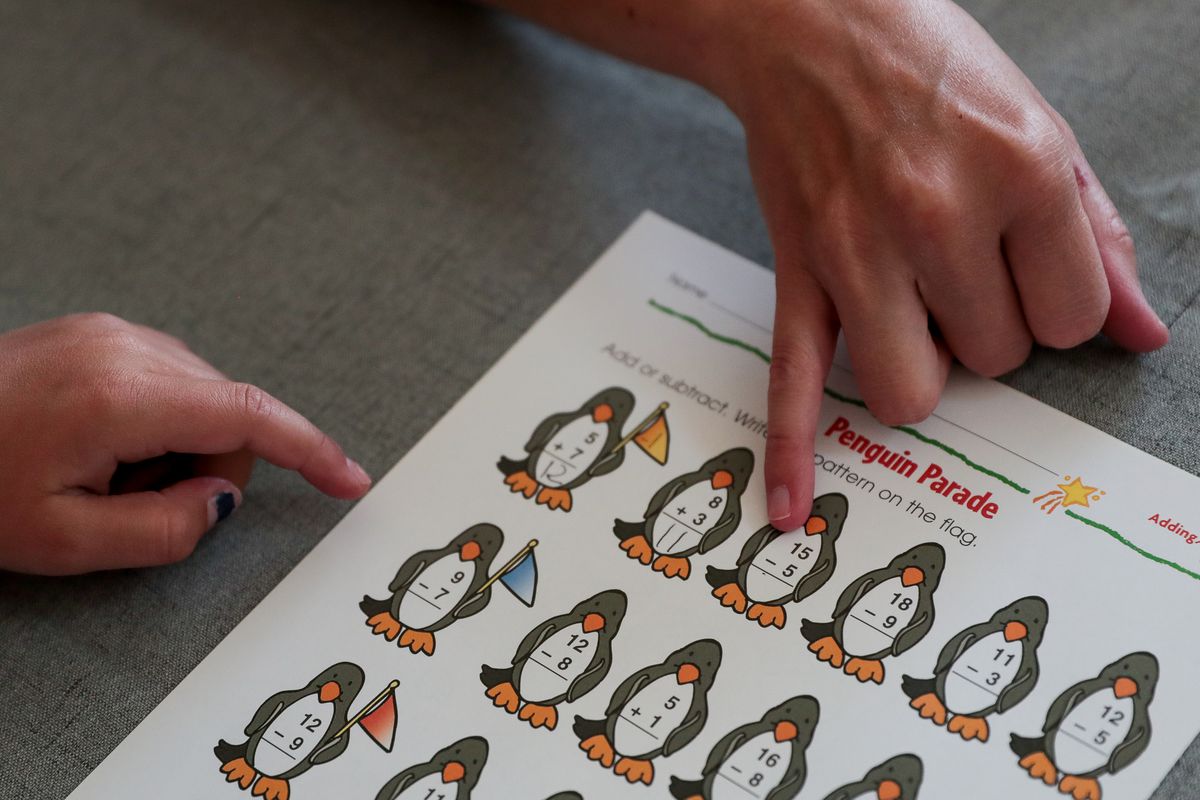
Filed under:
Parents and experts chime in with can-do tips to launch successful year
SALT LAKE CITY — School is now in session, or soon will be, for the nearly 57 million American kids in the nation’s public and private grade schools, middle schools and high schools, according to the National Center for Education Statistics.
The center estimates the average per-student expenditure in public elementary and secondary schools this year will be $13,440, for a projected $680 billion nationally. And that doesn’t count what families are spending.
But the biggest contributions parents and others make to a student’s successful school year are not monetary. They center on forming good habits, ramping up enthusiasm for education and helping students figure out what to expect and how to meet the expectations that will be placed upon them.
By now, backpacks are stuffed with supplies and most students have met their teachers, located their classrooms and done other basic tasks to kick off the 2019-20 year. But there’s a difference between showing up and really thriving. And a lot of that involves exercising one’s head and heart in ways that ensure success.
Amy and Spencer Watts of Lehi, Utah, took their three girls, preschool to fourth grade, on a school-sponsored scavenger hunt recently to introduce them to their neighborhood’s newly built grade school as part of their preparation for the just-started school year. Reese, 9, Nora, 6 and Eve, 4, have been practicing walking to school and crosswalk safety. And the parents tried hard over the summer to keep meal times and bedtimes consistent so they wouldn’t require big adjustments at summer’s end.

But much of their focus has been on enthusiasm, says Amy Watts. They want their girls to be excited and love school, and they’ve done everything they can to nurture that during the offseason.
Like the Watts, most parents are looking for ways to give their kids a boost. The Deseret News asked educators, child development experts and parents to share their insights on launching kids into a school year where they can thrive academically and socially. A surprising amount of the advice focused on things other than academics.
Mindset
Some experts say academic success starts not with what you learn, but what’s in your mind to boost learning, including tools to self-calm, a sense of wonder and gratitude.
Gratitude releases dopamine and serotonin, relieving anxiety and depression. When you feel grateful, it’s easier to focus on things that are going well and see positives, rather than dwelling on negatives and what has gone wrong, says Anne Grady, author, speaker and resilience expert from Austin, Texas. While lots of parents focus primarily — even exclusively — on grades, Grady says social well-being is an integral part of doing well in school.
She suggests figuring out what success means in your own family, then working backward from there to achieve it. Such a journey will inevitably have highs and lows, but that’s not something to fear. Parents need to help instill a mindset that struggles, challenges and even failure are not just bumps in the path to success, but building blocks to it, “because they are how we grow and strengthen ourselves,” adds Grady, author of “Strong Enough: Choosing Courage, Resilience and Triumph,” among other books.
Grady also emphasizes self-care and says parents have to model it themselves. Good self-care includes being physically active, but also taking time to meditate and practice mindfulness. That’s a major help to student academic success, as well.
“It sounds touchy-feely, but it’s really brain training,” says Grady, who notes that meditation involves focusing on the present and being attentive in the moment, skills most people lack. “We think so much about everything but what we are doing right now. When your child talks to you, put down the phone and give 100 percent of your attention. … Be where you are when you’re there.”
Schools increasingly teach or encourage mindfulness practices, some even offering a few minutes of guided meditation to start the day. Advocates like Grady refer to studies showing that students who enjoy mindfulness in the classroom earn better test scores and show higher levels of engagement.
Alissa Baier-Lenz, founder of Hero Backpacks, remembers being a little girl from Russia who didn’t speak English when she first went to school. “I was too young to understand I faced a language barrier, but old enough to realize there was a problem,” says the New Yorker. “When I was a little girl, a moment of kindness changed my life forever. A classmate thought it was cool that I spoke a different language, like a superpower. My best piece of advice for stating school is to reframe anything that might make a child feel different as a superpower that makes them unique.”
Some parents feel a little nostalgic as their babies become old enough to go to school. And some parents project their own memories of school on their kids, creating dread or expectations that have little to do with the child.
“A lot is determined by how parents talk about school and the negative connotations that can accidentally play a role in how our kids feel about going to school. So instead of ‘You have to go to school,’ if parents say, ‘You get to go school,’ the whole experience becomes more positive. Kids will look forward to it instead of dread it,” says Nicole Black, of Agoura Hills, California, who has three kids, 12, 9 and 7, and offers parenting advice at Coffeeandcarpool.com,
Several experts say parents should remind kids who had a rough previous year that it’s a new year and a new chance to do well.
“Sometimes children are frustrated based on the results of the previous year. Remind them that this is a new year and another chance to shine,” said April J. Lisbon, psychologist, mother of three and an autism coach strategist in Fredericksburg, Virginia, who has written several books.
One of the hardest things for younger students is “separating and feeling anxious about being away from the familiarity of home and family,” says Black, a former grade school teacher. She suggests putting a photo of family in young students’ lunchboxes so they see a friendly face whenever they want, an idea that is viral right now on social media.
All ears
Melanie Musson, a Belgrade, Montana, mom of children ages 9, 7, 2 and under 1 and writer for exercise.com, thinks the most important advice for parents to ensure kids thrive is to listen to the kids. She says it’s a priority to spend at least 15 minutes one-on-one with each of her kids and let them talk about whatever’s on their mind. Often, she suggests a short walk around the block, which “makes opening up easier.”
Dr. Fran Walfish, Beverly Hills, California, child and family psychotherapist and author of “The Self-Aware Parent,” encourages parents to help children normalize their feelings and find words to describe them. For a first-grader, for example, you might say, “You may feel excited or even a little nervous or scared. Those are natural feelings that everyone feels” early in a school year or job or when something’s new.
Probably the topic parents most hate to address — or even ponder — is that of safety at school. But it’s important to discuss, from how to cross the school parking lot safely to stranger danger and more.

Dr. Carol Lieberman, a Los Angeles psychiatrist and parenting expert, thinks parents should talk to even young children about the potential for physical danger and terrorism at school, including shooters. That’s a real fear for students that parents should address, she says, “especially before their kids will be taken on active shooter drills that frighten them.”
She feels so strongly about the topic that she wrote a parenting book, “Lions and Tigers and Terrorists, Oh My!” “Although the depth of this conversation varies with the age and maturity of the child, it is important to begin with at least an introductory conversation by age 5 because, once a child starts school, they are sure to hear other kids’ ideas about violence in the news and will be confused by them. It is important for parents to encourage kids to express their feelings and for kids to know that their parents are open to their questions.”
Lisbon doesn’t think the importance of listening to kids can be overstated. “Creating a space where your child feels like he or she can trust you to listen and not be judgmental can make the difference in how a child performs in school,” she says.
Children who have experienced a loss — from parents’ divorce, a death, a move, even illness — may have special emotional needs. Grief is common in those cases, says Gail Trauco, a registered nurse and grief mediator in Atlanta, Georgia.
Bullying is a separate issue — and it causes grief, too.
“If you child has been a victim of bullying, additional care and oversight are required, says Trauco, author of “Conquering Grief from Your Own Front Porch,” among other books. “Ensure that the new teacher and school faculty are aware of the bullying. Observe your child’s behavior for sudden mood changes or isolation from family activities. Grief is an unspoken feeling that spills over into children’s lives from school and family traumas. Parental awareness of a child who may be in a grief cycle is a call to action and is a first step to keeping a child emotionally healthy and happy.”
Sara Chana Silverstein knows a lot about raising kids — she has seven — and she’s developed a lot of handy tools to help her kids do well in school. By trade, she’s a master herbalist and has written a book about taming moods called “Moodtopia.” But one of her favorite tips is free and extraordinarily versatile.
“Always send kids off with a smile and greet them with a smile. Even if you are having a hard day, the image of a smile is very powerful,” she says.